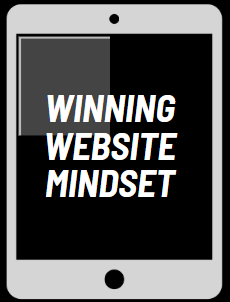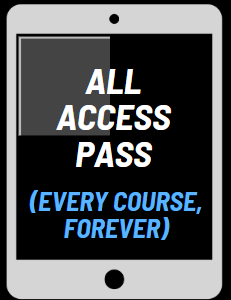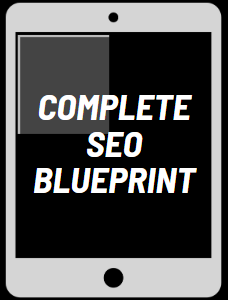Description
Course Modules
- Introduction: Why Your Website Matters
- Overview: Your website is more than an online business card. It’s a powerful tool to help you get more clients.
- Mindset Shift: Instead of just having a website to look good, learn how to make it work for your business by attracting and converting visitors.
- Learning Goals: By the end of this course, you’ll understand how your website can increase your client base and what simple changes can make a big difference.
- Understanding Your Audience
- Client-Centered Focus: Think about your website from your clients’ perspective. What do they want or need when they visit?
- What’s in It for Them?: Learn to frame your website content around solving your clients’ problems or meeting their needs, not just talking about your business.
- Guiding Their Journey: Your website should feel like a helpful guide, leading visitors step-by-step toward working with you.
- Homepage: First Impressions Matter
- Why It’s Important: Your homepage is often the first thing potential clients see, and you want to grab their attention right away.
- Simple Steps to Improve: Learn how to write a headline that speaks to what your clients need, not just what your business offers.
- Call-to-Action (CTA): What you say to get visitors to take action (e.g., schedule a call, sign up, buy) can make or break your website’s success.
- Making Your Website Easy to Navigate
- Why It Matters: If your website is confusing, visitors will leave without learning about your services.
- Simple Fixes: Learn how to make your website easy to use, with clear menus and simple ways to find important information.
- Help Them Take the Next Step: Your site should gently lead visitors to the next thing they should do, like filling out a form or learning more about your services.
- Building Trust with Your Website
- Why Trust Is Key: People need to feel they can trust you before they become clients.
- How to Build Trust: Showcase client testimonials, reviews, or stories that show how you’ve helped others.
- Be Authentic: Your website should reflect who you are and what you stand for, helping clients feel connected to your mission and values.
- Writing Website Content That Connects
- Talk About the Client, Not Yourself: Instead of listing your services, explain how those services solve your client’s problems.
- Crafting Your Story: Your “About” page should focus on how your experiences and skills help your clients, not just on your background.
- Keep It Simple: Avoid jargon and write in a way that’s easy for visitors to understand, keeping the focus on what’s in it for them.
- Optimizing for Mobile: Making Your Site Work Everywhere
- Why It’s Important: Most people will visit your website on their phones, so it needs to look good and work well on smaller screens.
- Simple Steps to Ensure Mobile Friendliness: Make sure buttons are easy to click, text is easy to read, and important information is right up front.
- Getting Found: Helping Clients Discover Your Website
- Why Visibility Matters: It’s important that potential clients can find you easily when searching online.
- Simple Ways to Help Your Website Be Found: Use clear, client-focused words in your website’s titles and descriptions, and ensure your website is easy to navigate.
- Local Focus: If you run a local business, make sure your website shows up when people nearby are searching for services like yours.
- Measuring Success Without Getting Overwhelmed
- Why It Matters: Understanding how people are using your website helps you make it even better.
- Key Things to Look For: Instead of diving into a lot of data, focus on simple things like how many visitors are turning into clients or how long people are staying on your site.
- Small Changes, Big Impact: Learn how to make small adjustments that lead to better results, like testing different headlines or offers.
- Keeping Your Website Fresh and Effective
- Why It’s Important: Websites aren’t “set it and forget it.” They need regular updates to stay effective.
- Easy Ways to Keep Your Website Up-to-Date: Learn simple ways to refresh your content and ensure your website always reflects your business’s current offerings and goals.
- Continuous Improvement: As your business evolves, so should your website. Keep an eye on how your website is performing and make small changes to keep it client-friendly and engaging.



